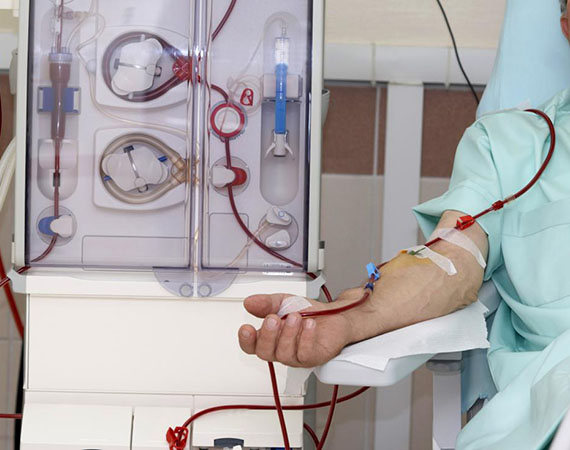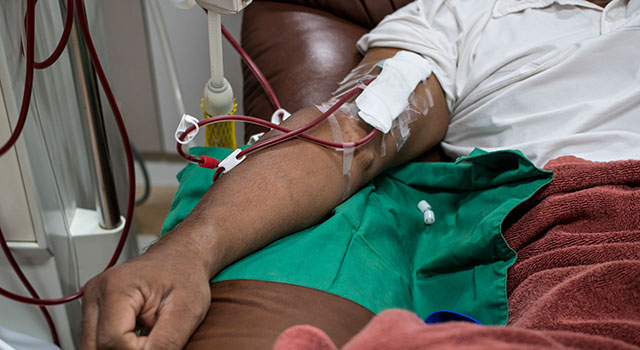What is dialysis?
People with damaged or failed kidneys may have difficulty eliminating unwanted water and waste from the blood. Dialysis is an artificial way of completing this process.
It's a treatment that takes over your kidney functions if those organs stop doing their job.
Healthy kidneys regulate the body's levels of mineral and water and remove waste. A patient who has lost 85 to 90 percent of their kidney function will likely need dialysis.


How do I prepare for dialysis?
It's best to wear comfortable clothes during your dialysis treatments. Also, be sure to follow all of Dr Ramsunder's instructions. These instructions may include fasting for a certain amount of time before the treatment.
Before your first dialysis treatment, Dr Ramsunder will surgically implant a device or tube to access your bloodstream. This is typically a quick procedure. You should be able to go home on the same day.
TYPES OF DIALYSIS
Hemodialysis
During this procedure, the blood circulates outside of the body. The blood goes through a machine with special filters. Next, the blood comes out of the patient througha catheter (a flexible tube) is then inserted into the vein.
The filters remove the waste products from the blood, and the blood then returns to the patient through another catheter. The system works like an artificial kidney.
Peritoneal dialysis
Peritoneal dialysis works through diffusion. In this procedure, a sterile solution rich in glucose and minerals is run through a tube into the abdominal body cavity, near the intestine.
This type of dialysis uses the natural filtering ability of the internal lining of the abdomen to filter waste products from the blood.
Continuous renal replacement therapy
Dialysis can be continuous or intermittent. A session of intermittent dialysis lasts up to 6 hours, whereas continuous renal therapies are designed for 24-hour use in an ICU.
Continuous renal replacement therapy can involve either diffusion or filtration. It is better tolerated than intermittent dialysis, since the fluid removal is slower. This leads to fewer complications. For example, patients have a lower chance of developing hypotension (low blood pressure)
Do you want to find out more, or do you have any questions about what to expect on the day of the appointment?
Give us callRequest Appointment
Please contact our practice at 021 391 9958 if you have any questions or if you would like to request a consultation, or fill out the contact form below.

Contact Dr Nikash Ramsunder to schedule an appointment
GIVE US A CALL: 021-391-9958Leave a message
